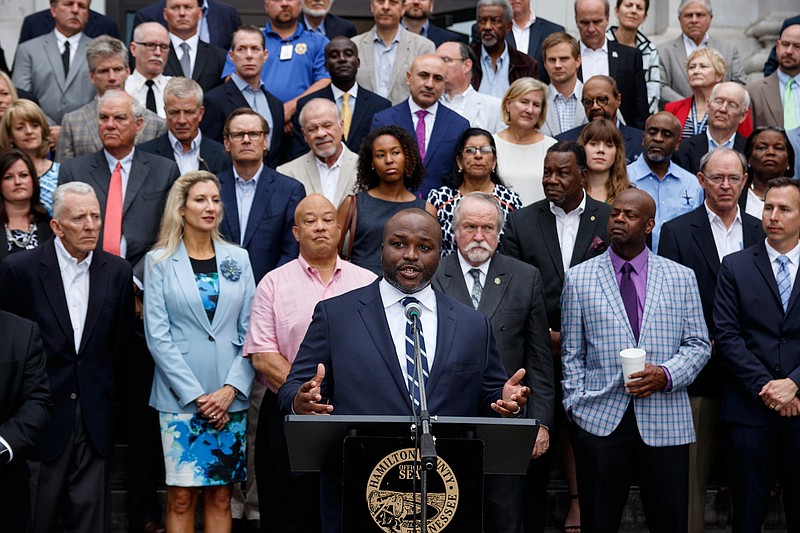On Wednesday, the Hamilton County Commission is expected to vote on Hamilton County Mayor Jim Coppinger's fiscal 2020 budget, the funding of which will require a 34-cent property tax increase for schools.
We have said before that we believe Hamilton County Schools Superintendent Dr. Bryan Johnson has made the case that the district needs more money. We especially believe the district should have more competitive teacher salaries with nearby counties. We also know the district must add special education employees to comply with the law and wants to add more mental health professionals to fulfill the desires of the public, who want to see prevented - as much as can be - any violence perpetrated by students.
If the budget request had been to fulfill those specific needs, plus the investments in safety and security suggested by Sheriff Jim Hammond, we could enthusiastically support this budget with whatever smaller tax rise it would demand.
However, we find ourselves worried that the school district is adding nearly 300 non-teaching positions in what seems to be a stock-the-pond-while-we-can budget scenario. And just around the corner is the revelation of a requested school facilities audit. Conspiracy theorists believe it's already in hand and being held, pending the vote on the tax increase. School sources say it's not likely to be revealed until later this summer.
Either way, the school facilities report is a ticking time bomb. It is likely to reveal deferred maintenance costs of more than $500 million dollars in district schools, note specifically how many schools are underutilized and how many are overcrowded, and hint at - if not suggest - the closing of a number of schools to right-size the district.
School officials have acknowledged in so many words - without spelling it out definitively - that this is coming. While needed, it will require the closing of some schools beloved by students and parents, the rezoning of practically the entire district and the eventual need to build more comprehensive schools in some areas.
Wouldn't it be more practical to wait until the dust settles and the changes are made from this report to see what funds are needed?
Unfortunately, the Hamilton County Board of Education and the Hamilton County Commission do not have the power to remove line items in Johnson's district budget and in Coppinger's general budget.
So they're all or nothing proposals. Those who vote for them - even if they don't like some of it - are praised as champions of public education. Those who vote against it - even if they like a lot of it - are labeled as anti-public education in our hyper-partisan society.
The school board, in rejecting the $34 million budget, could have suggested a balanced budget or one that asked a smaller tax increase. But board members approved it 7-2. The county commission, by rejecting the general budget, can on Wednesday then suggest a balanced budget or one that comes in with a smaller increase.
County residents received a de facto property tax increase in 2017, and many supported it because it would go toward building or renovating schools, a new jail (which has become renovating the Silverdale Detention Center) and a wastewater treatment plant (yet to be built).
They've also been told no tax increase for school operations has been implemented since 2005, a fair point. What's often left out of that argument, though, is that between 2007 and 2019 was the Great Recession and a tepid economy that lasted until 2017.
Our preference, lacking a defeat of the general budget by the county commission and the proposal of a smaller property tax increase to fund specific items as outlined above, would be to bite the bullet for one more year until the school facilities report can be factored in the funds that will be needed.
By the next budget season, the district should have a comprehensive plan for what it will have to do with individual schools, where savings can be found, where new money will have to be spent, and what efficiencies will be realized by right-sizing the district.
We have said before and continue to believe that Johnson is the right leader for the district, has the district poised to make strides in improved test scores (beyond those already made) and has given the district a way forward with a long-term strategic plan.
In 2020, with proof of significant improvement, with a new school facilities plan and with a clearer vision for what the future will look like, the public is more likely to see the wisdom of investing more in schools.
